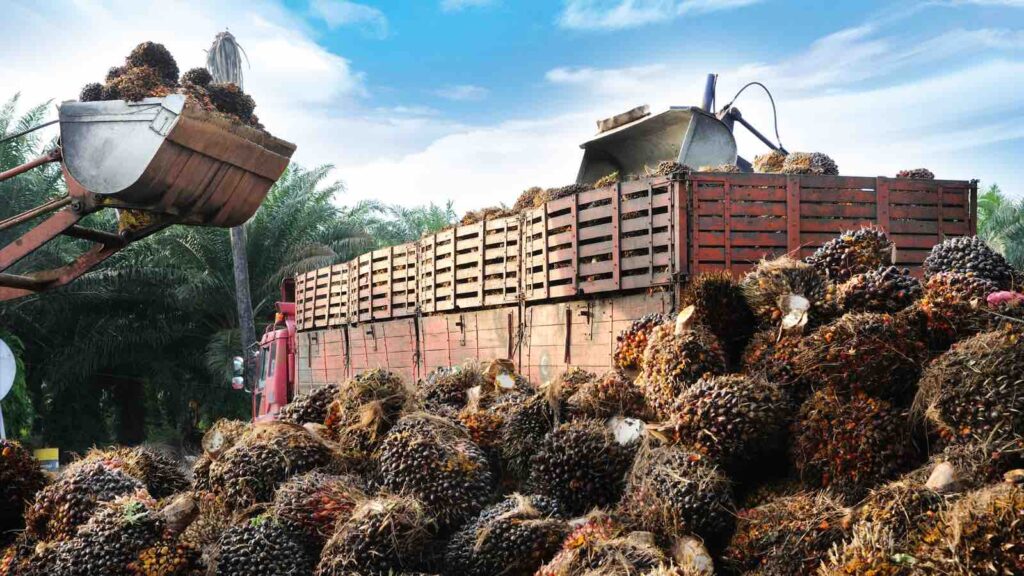Economic gains for Thai smallholders through RSPO Certification.
BANGKOK — Oil palm smallholders in Thailand have significantly increased both production and income as a result of obtaining Roundtable on Sustainable Palm Oil (RSPO) certification, according to a recent announcement by the RSPO. The certification has not only improved the livelihoods of smallholders but also helped reduce environmental, social, and economic impacts in the sector.
RELEVANT SUSTAINABLE GOALS



The oil palm industry in Thailand, the world’s third-largest producer of palm oil, is predominantly driven by smallholders, who manage over 70% of the country’s oil palm cultivated area. Certification under RSPO has proven to be a critical step toward enhancing sustainability while offering tangible economic benefits for small farmers.
Growth in Palm Oil Production
In a study commissioned by the RSPO and conducted by the Prince of Songkla University in Southern Thailand, researchers analyzed the environmental, economic, and social impacts of the Thai palm oil sector, with a specific focus on RSPO certification. The report titled Oil Palm Development in Thailand: Trends and Progress of Sustainability Efforts in Palm Oil Production and Procurement revealed a steady growth in palm oil production, increasing annually by 5.64% from 1.893 million tonnes in 2012 to 2.96 million tonnes in 2023.
The bulk of Thailand’s oil palm cultivation is concentrated in southern provinces such as Surat Thani, Krabi, Chumphon, Nakhon Si Thammarat, and Phangnga, where oil palm farming supports the livelihoods of approximately 400,000 farm households. RSPO certification has played a role in this growth by promoting more sustainable farming practices and creating better market access for smallholders.
Financial Benefits of Certification
The RSPO certification has yielded positive economic outcomes for smallholder farmers. According to RSPO’s data, certified smallholders saw an increase in income and production yields. In 2022, the average net income of RSPO-certified smallholders was 637,826 Thai Baht (US$17,600), compared to 279,943 Thai Baht (US$7,720) for non-certified smallholders.
For groups with 60 members, the financial benefits from certification are clear, with potential annual gains reaching up to 10.416 million Thai Baht (US$287,401) for groups of 260 members. Certification has also provided smallholders with better access to resources, markets, and premium prices for fresh fruit bunches (FFB), leading to improved yields.
A Push Toward Sustainability
RSPO certification is more than just an economic boon; it is also a crucial tool for sustainability in Thailand’s palm oil sector. “This report serves as a policy advocacy tool to support government agencies in guiding oil palm smallholders toward sustainability by providing accountable information,” said Radda Larpnun, RSPO technical manager in Thailand.
The Thai government has been instrumental in promoting the adoption of RSPO standards through initiatives like the Surat Thani Provincial Oil Palm and Palm Oil Development Plan and the SCPOPP Project, which have helped increase awareness and implementation of sustainable practices in the region.
As of May 2022, Thailand’s RSPO membership included 63 groups of small- and large-scale farmers, with 19 of those groups being RSPO-certified independent smallholders. These certified groups account for over 5,400 farmers and cover a certified area of 27,295 hectares, equivalent to 2.8% of Thailand’s total oil palm plantation area.
RSPO, a not-for-profit organization established in 2004, aims to promote the growth and use of sustainable palm oil products through global standards and stakeholder engagement. The success of RSPO certification among Thai smallholders demonstrates that sustainability and profitability can go hand in hand.
Looking ahead, Thailand’s efforts to expand RSPO certification and promote sustainable practices could further strengthen its palm oil sector while protecting the environment and improving the lives of smallholder farmers. As the country continues to adopt more sustainable approaches, the Thai oil palm sector is positioned to remain a key player in the global market for sustainable palm oil.
Lead image courtesy of Slpu9945 from Getty Images (palm oil fruits)
You may also be interested in :
Indonesia Sees Surge in Sustainable Palm Oil Certification Among Independent Farmers





